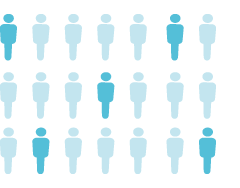
We use cookies to improve your browsing experience on our website. By continuing you agree to our terms of use.
Recently added item(s)
No products









Involuntary urine loss is extremely common. However, it is a symptom that represents a public health problem, with significant social and economic impact.1
Even the smallest urine loss of urine has implications on the quality of life, affecting physical, social, sexual and psychological aspects, with repercussions on the emotional level.
About 20% of the population suffers from urinary incontinence. With an aging population this number will continue to grow.

Urinary incontinence affects 20% of the population over 40 this means that 1 in 5 portuguese people over 40 years of age suffers from urinary incontinence.2
Women are most affected by urine loss. Currently, 33% of women and 16% of men over 40 have symptoms of urinary incontinence.1 It is an under-diagnosed condition, with only 4 to 6% of sufferers seeking medical help.2

Don’t keep the problem of urine loss to yourself. Seek the advice of your doctor or pharmacist on the best solutions, so that you regain confidence in all aspects of your daily life.
1 Associação Portuguesa de Urologia (Portuguese Urology Association).
2 Epidemiological study on the prevalence and treatment of urinary incontinence in Portugal, carried out by the Faculty of Medicine of Porto University. March 2008.